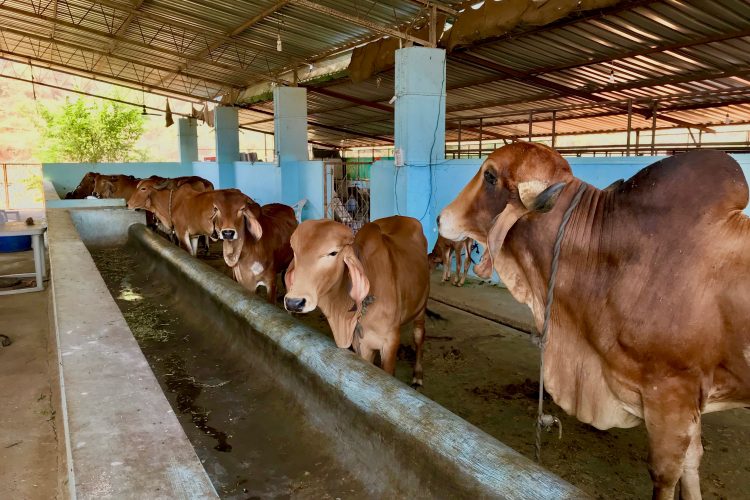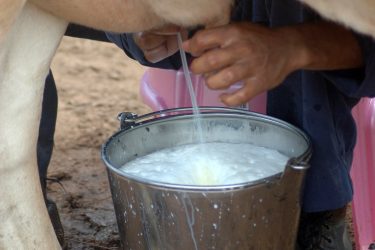India must stop misusing antibiotics in dairy sector, according to CSE report
- Like
- Digg
- Del
- Tumblr
- VKontakte
- Buffer
- Love This
- Odnoklassniki
- Meneame
- Blogger
- Amazon
- Yahoo Mail
- Gmail
- AOL
- Newsvine
- HackerNews
- Evernote
- MySpace
- Mail.ru
- Viadeo
- Line
- Comments
- Yummly
- SMS
- Viber
- Telegram
- Subscribe
- Skype
- Facebook Messenger
- Kakao
- LiveJournal
- Yammer
- Edgar
- Fintel
- Mix
- Instapaper
- Copy Link
Posted: 14 September 2020 | Bethan Grylls (New Food) | 1 comment
The CSE has expressed concern over antibiotic misuse by the world’s biggest milk producer, India, and says urgent and collaborative action must be taken.


Is the milk we consume safe? According to the Centre for Science and Environment (CSE), not really…
In July, the CSE hosted a virtual meeting to discuss the use of antibiotics within the world’s largest milk producer, Indian. Between 2018-19, the country produced a whopping 188 million tonnes.
However, a recent assessment conducted by the CSE has unearthed some “disturbing findings”.
“We have found that antibiotics are extensively misused in the dairy sector; antibiotic residues remain largely untested in milk, an integral part of Indian diets, particularly of children,” said CSE Director General Sunita Narain. “While we continue to struggle against COVID-19, we are staring at another pandemic like situation – that of antibiotic resistance fuelled by the way we are producing our food, which has become chemical-intensive.”
The assessment, CSE said, demonstrates that dairy farmers are “indiscriminately” using antibiotics such as aminoglycosides, penicillins and third-generation cephalosporins and fluroquinolones for common cattle diseases like mastitis. These drugs are among some of the most important for humans. In fact, the World Health Organization (WHO) has warned that such antibiotics should be preserved in light of the growing resistance crisis.
Despite the law dictating that such antibiotics should only be available with via the prescription of registered veterinarian, the CSE said that some farmers are accessing them illegally and injecting animals on their own judgement and without any veterinary supervision.
CSE researchers have also pointed towards inadequate focus on testing for antibiotic residues in the milk collected by some state milk federations, which process it and sell packaged milk and dairy products under popular brands.
“Farmers often sell milk while the animal is under treatment, which increases the chances of antibiotic residues in the milk,” explained Amit Khurana, the CSE’s Food Safety and Toxins Programme Director. “While milk sold directly to consumers is not tested, contrary to what one would expect, processed milk sold in packets is also largely unchecked for antibiotic residues.

“This explains why, despite pooling and processing, packed milk samples from several states had antibiotic residues in the FSSAI’s [Food Safety and Standards Authority of India] milk quality survey of 2018.”
However, the CSE has said that the online consultation in July has brought forth promising signs of action from the industry.
“The issues highlighted by the CSE assessment have been well recognised by the experts and stakeholders. These experts have also recommended several measures for minimising antibiotic misuse in the Indian dairy sector.”
He noted that “preventative aspects” are showing some success. “Information shared by various organisations, agencies and experts suggest that ethno-veterinary medicines, better management of sub-clinical mastitis, and good farm management are contributing towards reducing antibiotic misuse.”
Along with limiting the misuse of critical antibiotics such as penicillin, the CSE has recommended the modification of existing standards for antibiotic resides in milk and routine surveillance of these residues.
“India is now talking about antibiotic resistance in the one-health perspective,” noted Narain, who described the change in attitude as “remarkable” progress.
He continued: “There is a shared concern, and all voices are now together in expressing that concern.” As such he believes further (and necessary) action will be taken.
“We must ramp up surveillance and testing, put a complete stop to the use of critically important antibiotics and penalise their use,” he added, “and work with farmers and the agriculture-dairy sectors to innovate on solutions.”
Related topics
Related organisations
Centre for Science and Environment, Food Safety and Standards Authority of India (FSSAI)









Antibiotics residues in our food chain is something that need immediate attention! Milk is generally consumed by vulnerable group of population including infants, elderly, lactating and pregnant mother and recuperating patients. Therefore, the issue should be addressed quick as possible!